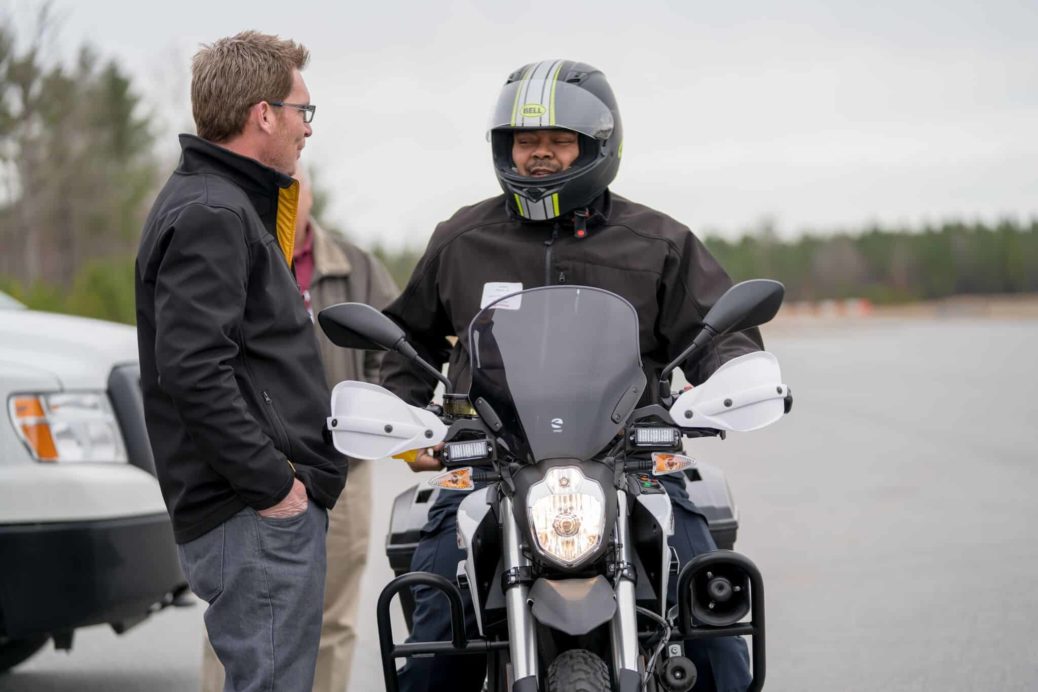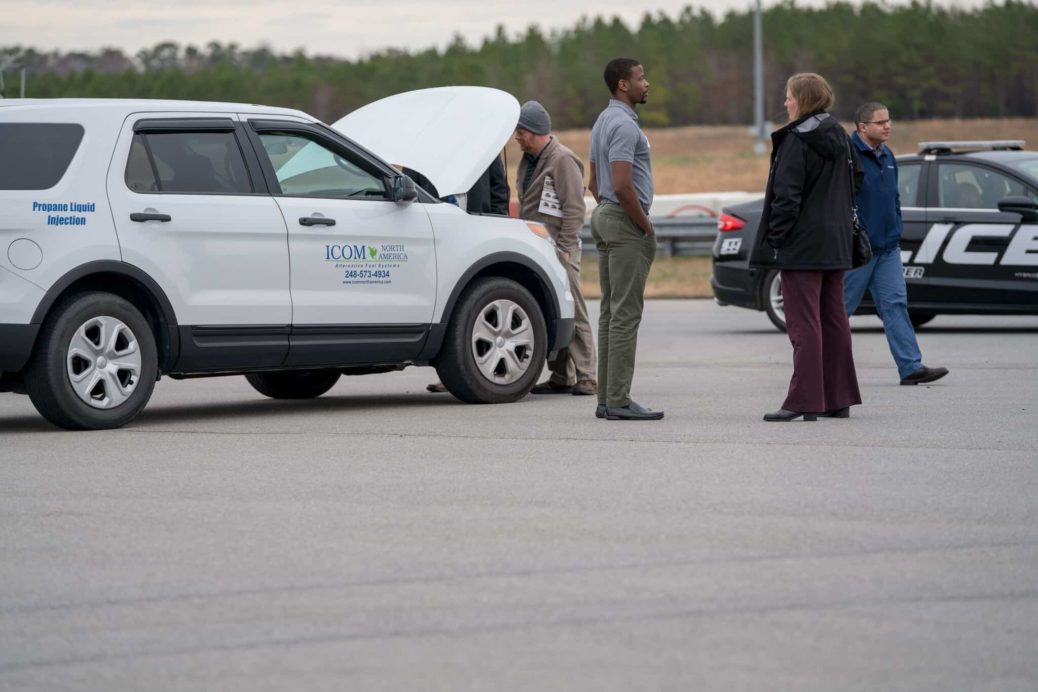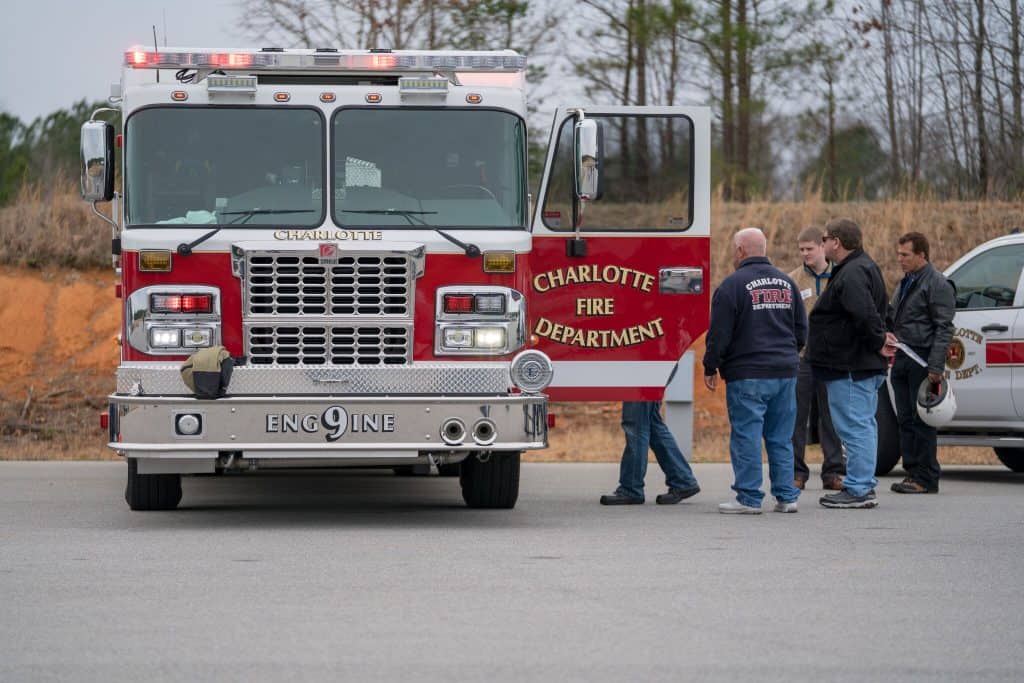|
NCCETC Awards $1.2 million in Air Quality Improvement Grants The N.C. Clean Energy Technology Center (NCCETC) announced the results of a call for projects through the Clean Fuel Advanced Technology (CFAT) Project. The 2017-2018 $5.6 million initiative, focused on reducing transportation-related emissions, is supported with federal Congestion Mitigation Air Quality funding from the N.C. Department of Transportation (DOT). More than $1,245,300 is being awarded for eight projects to a variety of public and private entities. A new round of funding has also been released, and the applications are due June 8, 2018. Apply here! The awards include: Alternative fuel vehicle (AFV) leasing by BuildSense, Inc. AFV conversions and idle reduction technology by City of Charlotte Idle reduction technology by Convoy Solutions and Viatec Incorporated AFV conversions by Gaston County North Carolina Propane Gas Association (NCPGA), and City of Winston Salem Diesel retrofit by North Carolina Department of Transportation Rail Division The CFAT project operates in counties that do not meet National Ambient Air Quality Standards. More than half of North Carolinians live in counties that have unhealthy air. In total, the awarded equipment displaces 353,265.16 gallons of diesel/gas a year, reducing 97.02 kg of daily emissions. Round 2 of funding request for proposal period has opened and awards will be announced by September 2018. Up to $1,455,000 in federal funding is being awarded for projects to a variety of public and private entities. The deadline to apply for this final CFAT round of funding for 2018 is June 8, 2018. For the application and more information, click here. |
Tag Archives: transportation
First Responder Clean Transportation Demonstration Day

First responders of all types got a chance to trade their typical mode of transport for a day and test drive several different alternative fuel vehicles, including LPG, CNG, PHEV and electric motorcycles, on a closed track.
About 60 first responders attended First Responder Clean Transportation Demonstration Day at the NC Center for Automotive Research (NCCAR), where they got a chance to learn about alternative fuel vehicles and clean transportation technology applications for law enforcement, fire and rescue, and emergency medical services.
The day started out with testimonials, real-world case study presentations and learning sessions, and was followed by vehicle test drives on NCCAR’s closed 2-mile, 40-foot wide serpentine road course in Garysburg, NC.

Most attendees took a lap around the track, said Richard Sapienza, Clean Transportation Program Director at North Carolina Clean Energy Technology Center – many reaching more than 100 MPH.
“It was a lot of driving and a lot of fun,” Sapienza said. “I wanted to be able to push the vehicles and see their performance in a safe environment, and that was achieved.”
The vehicles at the event were two Ford Explorer Interceptors, a Ford F350 PU, Chevy Tahoe, Ford F150 PU, Police Plug-In Focus and two Zero Motorcycles. The idle reduction technologies on display included a Smeal SG-09 APU Fire Truck, ZeroRPM REV Group Ambulance, Stealth Power Chevy Police Tahoe, and LGS Group Vehicle Technologies.

The two Zero Motorcycles featured the Z-force motor — a single moving part with no fluid, clutch or transmission, according to www.zeromotorcycles.com. Several attendees commented on both the motorcycles’ ability to pick up speed quickly while also remaining strikingly quiet, especially when comparing to most gas-powered motorcycles’ recognizable rumble.
The ambulances and fire trucks used idling technology, which minimizes the amount of time vehicles need to idle and allows them to use less of their engine or generator.
Attendees learned that all of the alternative fuel technologies could be used to save money, improve efficiency and extend vehicle service life.
Because of the event’s success, NC Clean Energy Technology Center hopes to repeat a demonstration day in the future.


